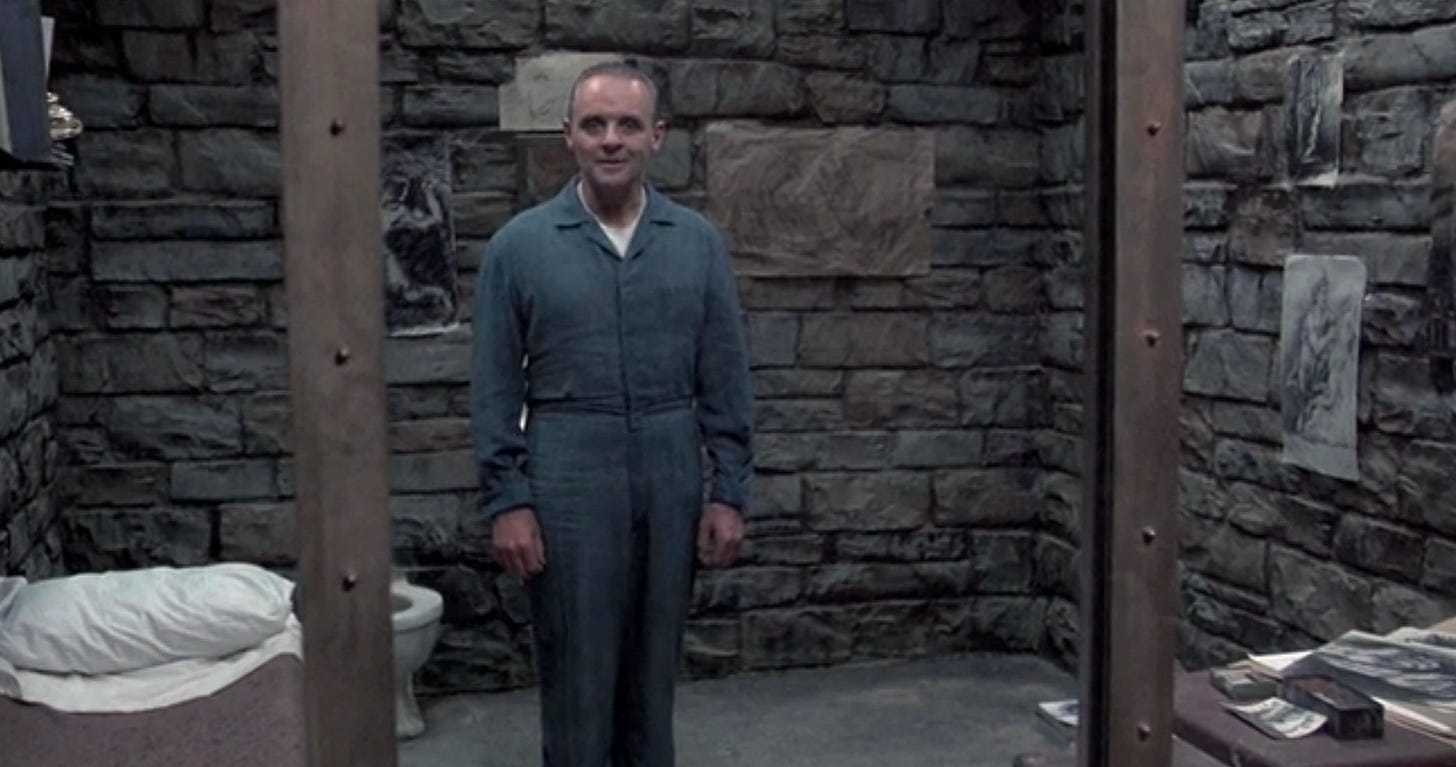A taxing issue – the New York debate
DraftKings’ and FanDuel’s New York tax arguments examined, recent analyst takes +More
Good morning. In this issue #4 of Due Diligence, E+M teams up with Paul Leyland at Regulus Partners to examine the arguments put forward by the operators in recent hearings in New York for lowering the tax rate.
The operators said a lower tax rate would over time lead to a higher actual tax take and warned that without a move to lessen the tax burden New Yorkers would end up with a worse sports-betting offering.
But, in arguing the case, their representatives had to make what they admitted was a counterintuitive argument that lowering the tax rate would lead to a greater tax take.
So was the Committee buying it?
Your love is such a thrill but your love won't pay my bills.
Let it plead
How do the arguments in favor of a lower tax rate in New York stack up?
Grass is greener: During a legislative committee hearing in Albany, DraftKings CEO Jason Robins and Christian Genetski, president at FanDuel, argued that without a lower tax rate, New Yorkers would suffer a worse offering than what is available in neighboring states or offshore.
Under questioning from representatives from both houses of the legislature, the pair described how the 51% tax rate works against both the state and the operators.
Genetski started by suggesting it was “counterintuitive” to argue that a lower tax rate would bring in more tax.
He noted that operators and the state were “partners” in the sports-betting endeavor.
“When we do better, the state does better,” he argued, suggesting that over a five-year period there would be “more upside to offset” the lower tax rate.
But there was an acknowledgement from Robins that, in the short term, the state would clearly see lower tax revenues.
“It's hard to say how quickly the market will adjust or readjust back to a different tax rate,” he told the legislators.
** SPONSOR’S MESSAGE ** SmartPay by CoinSmart offers crypto pay-in and pay-out solutions for the i-gaming sector and other emerging markets. We are publicly traded in Canada, highly regulated and licensed to offer best-in-class crypto payment processing globally. Schedule a demo and see how easy it is to integrate crypto payments into your platform. Book a demo HERE.
Not buying it
There must be another way outta here: The committee then turned to the question of what would happen if there wasn’t a change in the tax rate; with Assemblyman Gary Pretlow asking what was the Plan B? Robins responded that the operators would be “forced” to take actions that would lower the quality of offering for New Yorkers. This would include:
Lower odds.
Non-existent or severely dialed back promotional offers.
The cutting of relationships with local sports teams and marketing partners.
Jason Robins, CEO DraftKings: “We would make nowhere near the total amount of revenue and profit that I think we could make in a more favorable setup, but at least we would be able to have a sustainable market.”
Genetski suggested FanDuel was already deprioritizing New York with its marketing spend in order to help the company reach profitability overall.
“We can’t get there (by) investing more money in New York with no return on that investment,” he added.
Robins, meanwhile, claimed that although DraftKings had been cutting back on promotions generally “we still haven’t fully cut back on promotions in New York”.
Is that it? Paul Leyland from Regulus wasn’t impressed with the strength of the arguments put forward by Robins and Genetski. “They put forward pretty bad arguments,” he suggested. “The case for why they would want a change in the tax rate is blindingly obvious.”
“But the case for why the state of New York would be economically and socially improved by allowing online casino and reducing lost taxes hasn’t been successfully proven,” he added.
“They think the two arguments are the same and have conflated the two.”
Get what you pay for: As Leyland added, the problem the operators face is that, with the current legislation having delivered on its promises with regard to the tax take, the operators now have to convince the legislators that it should be changed, effectively because of their own stupidity.
Collusion illusion: Indeed, throughout the hearing both Genetski and Robins tried out various arguments that appeared to be less than persuasive. Take the issue of whether New Yorkers would really suffer worse odds than those available in the rest of the regulated states:
When the issue was broached, it was framed around a question of whether operators would collude to offer worse odds.
Robins understandably balked at this suggestion. But he did suggest the market would “adjust”. “Each operator, we’re all looking at each other’s odds; we’re all making sure that we’re competitive,” he said.
“The other choice is just to lose money forever in the market,” he added. “And I don’t think anyone’s going to do that. So I think it’ll have to happen, but it will be more iterative because, you’re right, we can’t directly collude.”
Further reading: Compliance+More looks into the slim chances of iCasino success in New York.
Paradise lost
Carrot/stick: The tack the operators have decided to take is to suggest that if the tax rate is left as it is, and the legislators sit back and leave the tax rate unchanged, then the players, seeing less value in New York, will move back into the illegal space.
“I think that’s what you’ll see,” said Genetski.
“That’s where most of these customers were betting beforehand. What we’ve been able to do is create a better value proposition in the illegal market and that’s why we’re winning customers from there.”
By creating an “inferior value proposition” players that, “all things being equal”, would prefer the protection offered by the legal market yet are clearly “comfortable” heading offshore would do so once again, said Robins.
He added that if DraftKings “turned” New York from being unsustainable to sustainable, “it’ll work for us” but once it does that “we’re going to lose customers back to the illegal market”.
Or neighboring states. While Genetski was keen to suggest FanDuel was “careful about doling out bonuses”, he added that players who realized that, after a losing streak, they weren’t getting the $50 free bet or “those sort of incentives” would go elsewhere, notably New Jersey.
“Say they happen to take a flight from Newark and they fire up their app and, lo and behold, there are all those incentives that they used to experience in New York and now they see them there',” he added. “That’s the danger.”
The comparisons: Another major claim is that New York is trailing the performance of other states. Publicly, at least, there is limited year-on-year data with – as it stands – only one month’s data in January to look at. The first YoY comparison shows growth with GGR up over 20% to $149.4m and handle up over 7% to $1.79bn.
But speaking at the same hearing, Spectrum Capital’s David Isaacson put forward data that indicated the potential for declines in GGR in the second full year of operations.
Spectrum suggested market share was more concentrated in New York than other states, at 96% for the top four vs between 82% and 93% elsewhere.
They added that the distribution of handle by quarter was “anomalistic” with the seasonal softness in Q2 and Q3, but with Q4 only generating 29% of handle for the year vs. other states’ Q4 percentages of between 35% and 49%.
Robins told the lawmakers to look at the data from New Jersey to see how “growth continues year after year” with a lower tax rate.
He added that the comparison with New York was “very different”.
Carnivorous
I eat cannibals: Despite being more relevant to the debate over the potential introduction of iCasino in New York, the issue of cannibalization was raised and Genetski suggested that in other states with iCasino there was no evidence of that happening.
“I think you see all the land-based operators now are huge proponents of iGaming for the most part because they’ve seen that it's just an additive to their business,” he added.
“There is data out there on this so we don’t have to guess, we know,” claimed Robins.
“And the data unequivocally shows that brick-and-mortar casinos, lotteries, all other forms, that fearfulness about lost revenue didn’t happen.”
“The way I would explain this is you’re bringing more people into the market. I think that’s really the dynamic that generally occurs.”
Eating your own lunch: Here, as Leyland noted, the arguments are at best tendentious. He pointed to research from Deutsche Bank produced back in 2021 that suggested iCasino was showing signs of eating into land-based gaming revenues.
“The data from DB is demonstrably correct,” he said. “But it is a slow process.”
In effect, cannibalization happens drip by drip, with percentage points being lost year-on-year but not at a rate that is – at first – truly noticeable.
“If you are growing at 3% and not 4% it doesn’t initially matter – until it does,” he suggested.
“The bottom line is that where you have large online gambling markets, you have constrained growth for land-based gaming.”
Boxed in
The blame game: One point of contention put forward by Robins looked at how the operators had managed to put themselves in a position where they were so heavily disadvantaged by a tax rate that they had themselves agreed to as part of their licensing bids.
It’s all your fault: Robins suggested the operators had been swept up in the moment.
“It was really a moment in time that this all happened,” he said. “We were in one of the biggest bull markets in history, sports-wagering operators were having money thrown at them by public investors.”
New York was “the litmus test” for how operators were going to perform across the rest of the markets.
“Since then, everybody's cut back,” he added.
Trying a slightly different tack, Robins then suggested both DraftKings and FanDuel had gone along with the higher tax rate in the hope that it would be lowered over time, while Genetski argued “we were not going to say ‘no’ to New York”.
Bad students: Leyland argued that one takeaway from the New York hearing is that neither company has learnt the lessons from the failed California Proposition campaign in November. And this has wonder implications for the future advances of OSB and iCasino.
“That demonstrated that the current way that online gambling companies lobby puts off the voters,” he noted, adding that neither DraftKings or FanDuel have altered their arguments since the California loss.
“They haven’t learned the deep lesson in California yet and, until they do, they are not going to win any big state lobbying.”
**SPONSORS MESSAGE** Pretty Technical provide software, bespoke development and flexible resource solutions including an Augmented Teams service to enhance your internal technical talent. Our teams have years of experience in delivering global iGaming products and platforms players love. Speak to us about your development resource requirements and put your project in safe hands.
Read more about solutions for resourcing issues: https://prettytechnical.io/technical-people/
Analyst takes
Macquarie suggested OSB will boom in 2023 due to same-game parlays and that the Las Vegas calendar is looking busy.
Corporate advisory firm Hoolihan Lokey also suggested a “once-in-a-generation” boom.
Regional gaming’s year ahead will be less fulsome, however.
Roth MKM issued a sell note on DraftKings ahead of its Q4 results.
But the wider reaction to DraftKings’ earnings call was overwhelmingly positive.
Calendar
Feb 21: Caesars Q4
Feb 22: Catena Media FY
Feb 23: Churchill Downs Q4
Feb 24: VICI Q4
An +More Media publication.
For sponsorship inquiries email scott@andmore.media.












